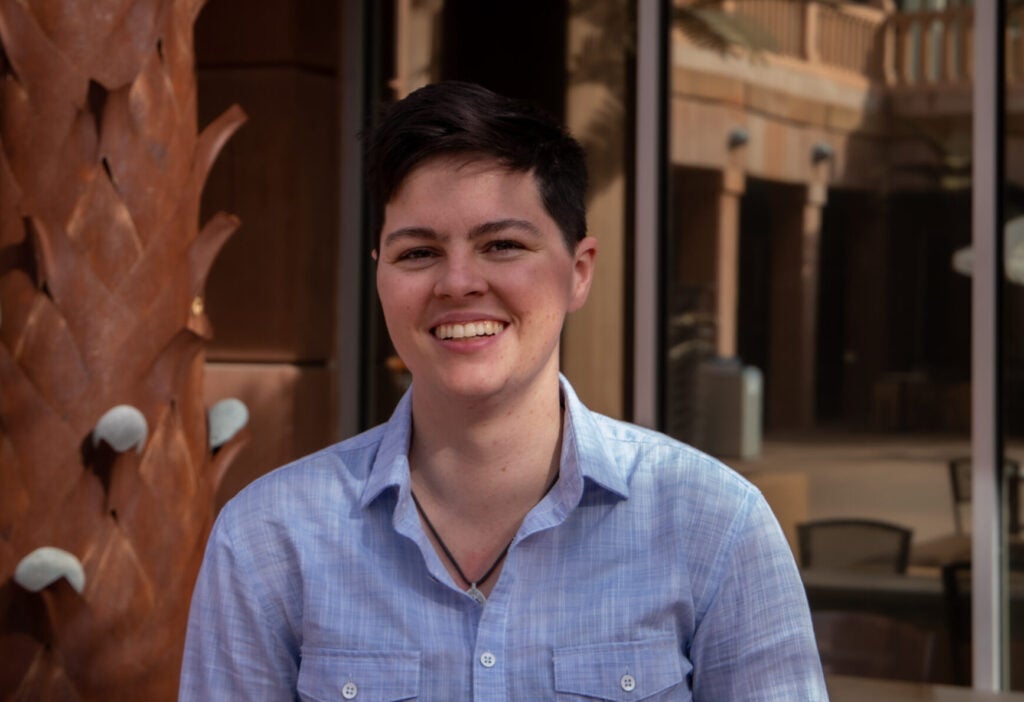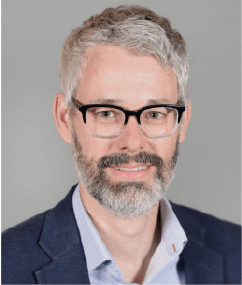A Brilliant Journey Unfolds
Meet the brilliant Katherine (Rin) Ball, a doctoral student in the Human and Social Dimensions of Science and Technology program at Arizona State University. With an unwavering passion for understanding how the U.S. federal government implements environmental policies and engages with local communities. As an ORISE Science Policy Fellow at the U.S. Department of Energy, Rin’s journey has been nothing short of inspiring, filled with exceptional dedication and transformative research.
 The Pioneering Helium Futures Project
The Pioneering Helium Futures Project
As she pursued her Master’s in Science and Technology Policy, Katherine’s determination led her to the Civic Science for Environmental Futures Lab, where she joined forces with community partners to work on the groundbreaking Helium Extraction project. Directed by JPB Fellow Kirk Jalbert, the Civic Futures initiative focused on exploring ways for communities to actively engage with science and policy, envisioning a more just and equitable environmental future. Her dedication was evident as she spearheaded the development of “Helium Futures,” an education game centered around a fictional community facing helium extraction. Helium Futures was part of Katherine Ball’s Master of Science, Technology and Policy Program thesis project, and was co-designed with members of No Fracking Arizona under the direction of JPB Fellow Jalbert as well.
A Journey in Collaboration with JPB Fellows
As a doctoral student, she played a crucial role in launching a collaborative project directed by JPB Fellow Jalbert and JPB Agency Fellow Matthew Cutler, who is a Social Scientist at the Social Sciences Branch at the Northeast Fisheries Science Center in Woods Hole, MA. The JPB funded project “A social network investigation of fisheries stakeholder organizations’ social media activity on the topic of sustainable fisheries in the Northeast United States”, was a multi-year effort to understand stakeholder organization networks and perceptions about the development of electronic monitoring (EM) for the New England multispecies (groundfish) fishery. The team conducted a social network analysis of stakeholder organization social media interactions and interviewed 26 key informant representatives from stakeholder organizations to understand how the fishery is planning for the adoption of EM. The research focused on the differing perspectives on the value of EM as an appropriate tool for protecting the fishery, and as a tool of surveillance that may transform the lives of fishers, including impacts to their health and well-being.
Embracing a Sea of Opportunities
In recognition of her exceptional commitment and expertise, Katherine’s journey took an exciting turn in 2021. She obtained a prestigious NOAA Sea Grant Knauss Fellowship, which offers a one-year paid experience for graduate students with a passion for ocean, coastal, and Great Lakes resources, matching them with influential “hosts” in the legislative and executive branches of the government in Washington, D.C. As she continues her inspiring pursuit of knowledge and transformative research, we eagerly anticipate the positive impact she will have on environmental policies and community engagement.
Collaboration in Brilliance


JPB Fellows Jalbert and Cuttler worked closely on every aspect of their JPB project with Rin Ball, Noa Bruhis, and Teal Guetschow, outstanding student assistants at Civic Futures Lab, and co- authored and published two peer reviewed articles and delivered a white paper to the New England Fishery Management Council. Find the details of the work below.
Jalbert, Kirk, Cutler, Matthew, Guetschow, Teal, and Bruhis, Noa. “Surveillance Systems for Sustainable Fisheries: Perceptions on the Adoption of Electronic Monitoring in the Northeast U.S. Multispecies Fishery.” Surveillance and Society. (Forthcoming).
Researchers found that, while most stakeholders support the use of EM in the future, mistrust within the industry—based on historical regulatory failures, perceived lack of information on technical feasibility, privacy and data ownership issues, and the unknown long-term costs to vessel owners—pose significant barriers to successful adoption of these technologies. They conclude that these barriers can be overcome by investing in co-management driven EM implementations that draws on the expertise of fishers, increases their autonomy over their vessels, and their use of data.
Runnebaum, Jocelyn M., Nelson, Laura K., Harper, Sarah J., Bell, Richard J., Smith, Geoffrey S., Cullen, Alison C., Cutler, Matthew J., and Levin, Phillip S. “Harvester perceptions of climate vulnerability: Contributions to building climate resilient fisheries.” Frontiers in Marine Science. 9:1049445. doi: 10.3389/fmars.2022.1049445 9:1049445.
Researchers conducted a regional survey to evaluate the perceptions harvesters hold regarding the impacts of climate change on commercially fished species in the Northeastern United States and the resulting risks from those changes. Despite a sense of vulnerability to climate change, respondents did not rank it among the top three concerns (fisheries regulations, market access, and access to working waterfronts) for their fishing businesses.